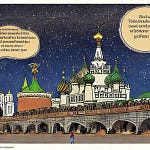This newsletter is really a public policy thought-letter. While excellent newsletters on specific themes within public policy already exist, this thought-letter is about frameworks, mental models, and key ideas that will hopefully help you think about any public policy problem in imaginative ways. It seeks to answer just one question: how do I think about a particular public policy problem/solution?
Welcome to the mid-week edition in which we write essays on a public policy theme. The usual public policy review comes out on weekends.
PS: If you enjoy listening instead of reading, we have this edition available as an audio narration on all podcasting platforms courtesy the good folks at Ad-Auris. If you have any feedback, please send it to us.
- RSJ
Democracies have periodic elections to ascertain the will of its people on who should govern them. Often the incumbents lose. This leads to a nebulous, yet perhaps the most precious of features of a democracy – the peaceful transfer of power between the vanquished and the winner. In most democracies, there isn’t a written down law on how this should happen. Instead there are norms of conduct and fair play that guide this. The idea that someone voluntarily steps aside and lets an opponent take over the reins of power is fraught with risk. There’s no guarantee if this gesture will be reciprocated or perpetuated in future. The ability to transcend this fear is what makes democracies tick around the world.
Cannot Be Taken For Granted
How precious this feature is can be gauged from this study done by Adam Przeworski of New York University that was cited by the Economist a few weeks back.
“Mr Przeworski’s database, which analyses elections in more than 200 countries between 1919 and 2015, shows that only a little more than half have had even one orderly electoral transfer of power—defined as government handovers free of coups, civil wars or constitutional crises after a vote.
Eleven such handovers from one party to another have occurred in America since the end of the first world war. This makes the country an exceptional success on this measure.”
Norms follow a logic unique to them. Once set it isn’t easy to dislodge them. Conversely, once challenged and then flouted, it’s difficult to restore them. The norm of peaceful transfer of power for the world was set in the US in the early 19th century. The elections of 1800 were fractious and fiercely contested between the Federalists led by the incumbent President John Adams and the Democratic-Republican Party led by Thomas Jefferson. This was a bitter battle. To quote www.history.com:
“During Adams’s presidency, Democratic-Republicans and Federalists clashed over everything from taxes to religion, but especially over the main policy dilemma facing the nation: how to deal with the ongoing French Revolution.
These bitter differences were front and center during the 1800 presidential campaign, which played out in the highly partisan press. Federalist newspapers and propaganda materials branded French sympathizers as dangerous radicals, while Democratic-Republicans accused the Federalists of wanting to re-establish a monarchy.
When the votes were counted, confusion reigned. Though Jefferson and his running mate, Aaron Burr, had defeated Adams and Pinckney, both had received the same number of electoral votes. The tie sent the decision to the House of Representatives, where Jefferson finally won the presidency on the 36th ballot.
In the early morning hours of March 4, 1801, John Adams, the second president of the United States, quietly left Washington, D.C. under cover of darkness. On the heels of his humiliating defeat in the previous year’s election, Adams was setting an important precedent. His departure from office marked the first peaceful transfer of power between political opponents in the United States, now viewed as a hallmark of the nation’s democracy. Since then, the loser of every presidential election in U.S. history has willingly and peacefully surrendered power to the winner, despite whatever personal animosity or political divisions might exist.”
In his inaugural address, Jefferson made his famous unifying declaration:
“But every difference of opinion is not a difference of principle. We have called by different names brethren of the same principle. We are all republicans. We are all federalists.”
Banking On The Usual American Exceptionalism?
Over the years, there have been laws drafted and passed to establish a mechanism for peaceful transfer of power. The Presidential Transition Act of 1963 and its numerous subsequent amendments have attempted to create more defined guidelines to achieve this.
Yet a few features remain unique to the transfer of power in the US electoral system:
There’s an inordinately long 10-week transition period between the elections and the inauguration of the new President.
During this period, the incumbent President continues to hold full executive powers till the President-elect is sworn-in.
There’s no clarity about what happens if the incumbent refuses to transfer the power citing fraud or electoral irregularities.
Alexis de Tocqueville in his classic Democracy in America remarked on the period just preceding the presidential election and after it with acuity:
“Whatever the prerogatives of the executive power may be, the period which immediately precedes an election and the moment of its duration must always be considered as a national crisis, which is perilous in proportion to the internal embarrassments and the external dangers of the country. Few of the nations of Europe could escape the calamities of anarchy or of conquest every time they might have to elect a new sovereign.”
The ‘national crisis’ that he calls out isn’t a hyperbole.
This transition period where no one is really in control has seen some famous missteps by the U.S. political class. The transition from Buchanan (arguably, the second worst President after Trump) to Lincoln between November 1860 and March 1861 was when the states of the Confederate South prepared for the Civil War while the executive remained paralysed. Similarly, the protracted legal battle between Bush and Gore following the elections in 2000 is believed to have given Bin Laden and his associates the window to plan 9/11.
These unique features and the dangers of protracted legal battle during the transition period have now come into focus as President Trump refuses to acknowledge he lost the elections. With the crisis of a second wave of Covid-19 striking many states and the urgent need for a national vaccination plan to be administered in the next six months, there couldn’t be a worse time to question the legitimacy of an election and rousing nearly half of the country to believe the voting was rigged.
But Trump has managed that. And more.
He is now striking at the foundational norm of democracy – the peaceful transfer of power – a gift that the US has given to the world. Such norms once questioned cease to be inviolable. All bets are then off for future transitions.
Tocqueville had cited three causes responsible for maintenance of democratic republic in the United States:
The peculiar and accidental situation in which Providence has placed the Americans.
The laws.
The manners and customs of the people.
The Manners Of Americans
Of these, Tocqueville specifically cited the manners of American people as the most critical determinant of its success as a democratic polity. He wrote:
“The citizen of the United States does not acquire his practical science and his positive notions from books; the instruction he has acquired may have prepared him for receiving those ideas, but it did not furnish them. The American learns to know the laws by participating in the act of legislation; and he takes a lesson in the forms of government from governing. The great work of society is ever going on beneath his eyes, and, as it were, under his hands.”
“The laws and manners of the Anglo-Americans are therefore that efficient cause of their greatness which is the object of my inquiry.
The American laws are therefore good, and to them must be attributed a large portion of the success which attends the government of democracy in America: but I do not believe them to be the principal cause of that success; and if they seem to me to have more influence upon the social happiness of the Americans than the nature of the country, on the other hand there is reason to believe that their effect is still inferior to that produced by the manners of the people.
The manners of the Americans of the United States are, then, the real cause which renders that people the only one of the American nations that is able to support a democratic government; and it is the influence of manners which produces the different degrees of order and of prosperity that may be distinguished in the several Anglo-American democracies.”
As Trumpism and a deeply divided society contend with an unprecedented scenario of a raucous transfer of power that so far was the preserve of newly minted democracies of Africa and South America, one hopes the ‘manners’ of the American people that Tocqueville extolled, will save them from the blushes.
The American people will have to be at their best ‘manners’ in the coming days.
HomeWork
Reading and listening recommendations on public policy matters
[Article] Timothy Naftali in the Foreign Policy: “The transition of power between presidents has long been a weakness of the U.S. political system. But never more so than now.”
[Article] The Election That Could Break America, a long-form piece by Barton Gellman in The Atlantic about the various scenarios of transfer of power











Share this post